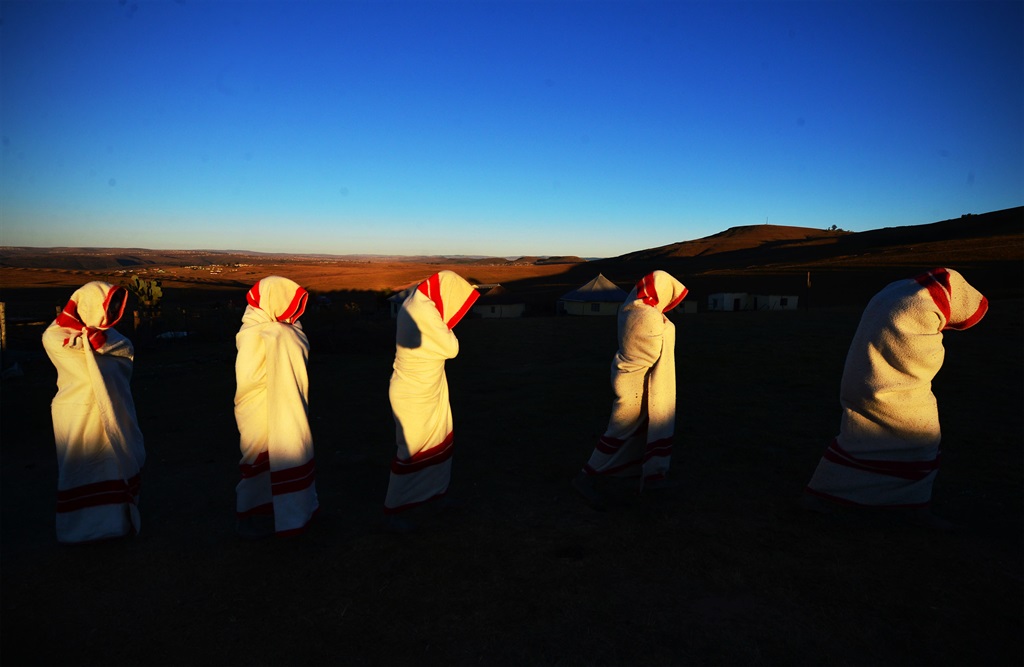
Voluntary medical male circumcision has been shown to reduce the risk of female-to-male HIV transmission by 60%.
Studies have also shown that by reducing infections in men and boys, the intervention in turn also reduces HIV infections in women and girls, although to a lesser degree.
But with the Covid-19 coronavirus pandemic and the associated lockdown, health authorities say the numbers of men and boys being medically circumcised have dropped dramatically.
According to recent estimates from the Thembisa model, the leading mathematical model of HIV in South Africa, more than 500 000 medical circumcisions were conducted in the country last year, with just under half of these in boys aged 10 to 14.
“There have been very high rates of medical male circumcision uptake since 2011, especially in the 10-14 age group,” says Dr Leigh Johnson of the Centre for Infectious Disease Epidemiology and Research, at the University of Cape Town.
“Medical male circumcision reduces men’s rate of HIV acquisition by about 60%, so we think this is one of the significant factors leading to HIV incidence declines in young men in recent years,” Johnson said.
Programme suspended
“Medical male circumcision is an elective surgery and to prevent the risk of Covid-19 infection, all activities [under the programme were suspended] in March in line with the president’s call for a level 5 lockdown,” says Popo Maja, spokesperson for the national department of health.
“However, with the easing of the lockdown, the suspension was lifted in late June to allow for low-volume circumcisions in non hotspot districts/provinces.”
Read: U=U: People with HIV should be at the centre of prevention efforts
Figures shared by Maja show that in the first three quarters of this year, 111 766 medical circumcisions were conducted in South Africa, compared to 411 063 in the first three quarters of last year.
This amounts to a drop of around 73%.
As Maja explains from the graph below, “it is clear that Covid-19 has severely affected and has negatively impacted on the routine performance of high-volume medical circumcisions nationally”.
Provinces relaunching
Mark van der Heever,spokesperson for the Western Cape department of health, says that because of the lockdown, which resulted also resulted in non-emergency operations being put on hold, the province’s medical male circumcision target of 15 000 to 16 000 for the 2020/21 financial year will not be achieved.
Van der Heever says under normal circumstances the province would reach this target but due to the Covid-19 restrictions, they only performed 13 796.
In Gauteng, health department spokesperson Philani Mhlungu says that the Covid-19 impacted male circumcision programmes as services had to be suspended.
“Medical male circumcision services were suspended due to the lockdown restrictions ... services were to commence from July 1 2020, pending a site readiness assessment of all service points including all general practitioners/doctors [the province has] on contract,” says Mhlungu.
Read: Stigma regarded as main reason young boys go to illegal initiation schools
According to Coceka Nogoduka, the SA National Aids Council’s executive manager for the national strategic plan, in the Eastern Cape male circumcision procedures dropped from 3 444 between April and June last year to only 166 for the same period this year, a 95% drop.
Attempts to get a comment from the KwaZulu-Natal health department on its male circumcision programmes were unsuccessful.
Meanwhile, the department of cooperative governance and traditional affairs has suspended this year’s summer circumcision season due to a spike in the Covid-19 cases.
However, some Eastern Cape clinics are still issuing documents to parents certifying that their sons are fit for initiation school.
Negative impacts
Tsietsi Mbuso, a demand creation coordinator at the Centre for HIV/Aids Prevention Studies in Johannesburg, tells Spotlight that the coronavirus pandemic has had “negative impact on all HIV/Aids prevention programmes that were active before”.
According to Mbuso, most men still hold the perception that circumcision is best done in winter. He says before the outbreak of Covid-19, the centre had a lot of bookings from interested clients that were willing to come during the winter season. But the lockdown restrictions at time, he says, affected the uptake of the male circumcision programme.
Mbuso says the greatest challenge for the programme is that men are still sceptical about coming to public health facilities to access services for fear of contracting Covid-19.
Circumcision and HIV
The circumcision programme has, over the last decade, also become an integral part of South Africa’s HIV prevention efforts.
According to the latest estimates from the Thembisa model, 57.5% of men aged 15 to 49 in South Africa were circumcised (including both traditional and medical circumcisions) as of mid last year.
This constitutes a 21 percentage point increase over 2010 – when the male circumcision programme started in earnest.
With 85% of men aged between 15 and 49 circumcised, Limpopo was far ahead of other provinces last year, Eastern Cape (63.5%), Mpumalanga (63%), Free State (61.9%) and Gauteng (58.4%).
The four provinces with the lowest circumcision numbers are KwaZulu-Natal (51.8%), North West (47.7%), Western Cape (40.9%), and Northern Cape (37%).
The male circumcision programme has mostly been well received with 78% of women preferring their partners to be circumcised, according to the 2011 youth sex survey.
Questions of culture
Medical circumcision has been shown to generally provide greater protection against HIV infection than traditional circumcision.
But there are cultural pressures on some young men to be circumcised in the traditional.
In Limpopo, the Free State and the Eastern Cape, many young boys still undergo circumcision the traditional way. In these provinces, circumcision is often seen as one of the most important moments in the lives of young boys as they embark on the journey from boyhood to manhood.
But some of them, especially in the Eastern Cape, they end up with botched operations or sometimes die while undergoing the ritual.
Spotlight reached out to the Congress of Traditional Leaders of SA general-secretary, Zolani Mkiva, to get the body’s view on male circumcision and if there ca be a solution to deaths of initiates.
But, although acknowledging receipt of our questions, he had not responded by the time of writing.
Check out our special report on initiation here.
What makes a man?
Fearing for the safety of his 18-year-old son who is set to undergo circumcision, a Cape Town parent *Mzimasi Nkewu says he is considering medical male circumcision for him.
He would have preferred his son to undergo the practice in the mountain, just like he did, but after some boys died in his village, he is skeptical.
“The sad thing is that boys who don’t do the practice in the mountains get isolated and get called names. They are not considered real men. But which is better – being isolated or dying in the mountain? I want medical male circumcision for him,” says Nkewu.
Mbuso believes communities need to be educated about cultural tolerance and be made to understand that all cultures are unique and no one should impose their cultural beliefs on others.
Read: Initiation: ‘Women carry these boys for nine months and we kill them in just eight days’
“I think South Africa is blessed to be counted among countries that have diverse cultures coexisting, but also not forgetting the fact that every person sees his/her culture being [superior to] the other, because of the difference in language, geographical attachment and upbringing,” he says.
“With that said, not all South African cultures practice the passage to manhood [initiation] within their respective cultures, and we also need to be cognisant of the fact that male circumcision is a choice and not a classification of defining what a man is.”
* This article was produced by Spotlight – health journalism in the public interest.
| ||||||||||||||||||||||||||||||
 |




 Publications
Publications
 Partners
Partners










